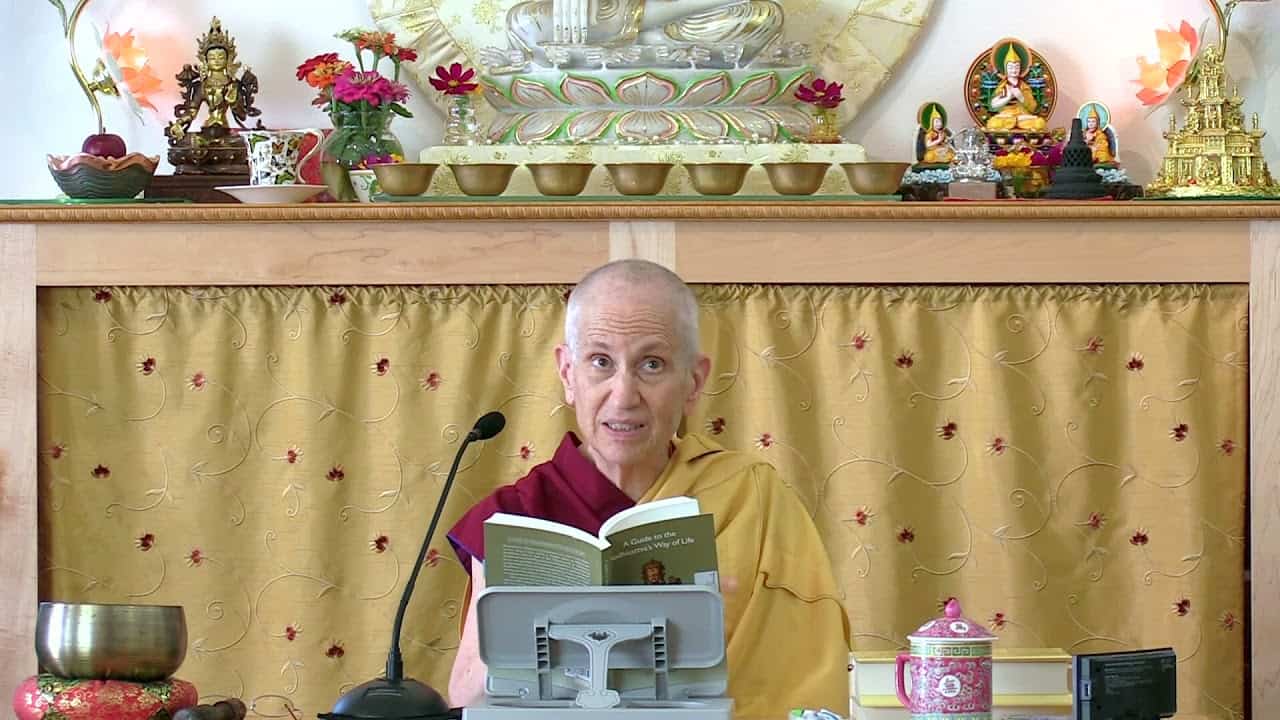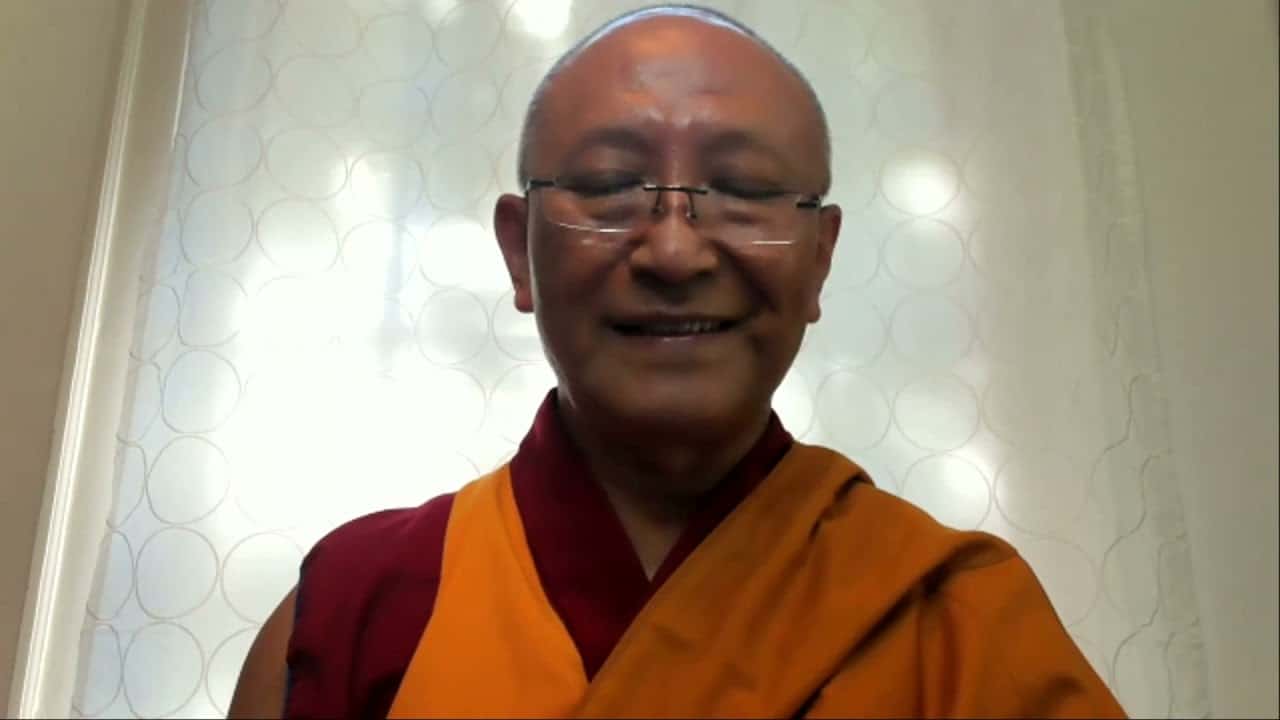Virtue, nonvirtue, merit, and roots of nonvirtue
37 Samsara, Nirvana, and Buddha Nature
Part of an ongoing series of teachings (retreat and Friday) based on the book Samsara, Nirvana, and Buddha Nature, the third volume in The Library of Wisdom and Compassion series by His Holiness the Dalai Lama and Venerable Thubten Chodron.
- Intention is basis for virtuous or nonvirtuous action
- Seeds of karma are neutral
- Seeds of virtuous or nonvirtuous actions
- Results from a virtuous or nonvirtuous action can be neutral
- Five types of virtues and five types of nonvirtues from Asanga’s text
- Explanation of merit and root of virtue
- Different considerations for the evolution of the universe
- Explanation of causeless or random origin
- Different views of creation from a single cause or source or event
Samsara, Nirvana, and Buddha Nature 37: Virtue,_Nonvirtue,_Merit, and Roots of Nonvirtue (download)
Contemplation points
- Being able to differentiate between what is dukkha and what is not dukkha is essential for making good choices in life and for accomplishing the path to liberation and awakening. The first form of dukkha (the dukkha of pain) is often obvious. But consider the dukkha of change and of pervasive conditioning. We often don’t think of these as dukkha. Make some examples of these forms of dukkha in your life and what makes them seem like happiness. Work through those examples using the Buddhist worldview, discerning what is really happiness and what is really dukkha.
- Our bodies, our possessions, relationships, etc are not virtue or non virtue in and of themselves. We can use them to create virtue or non virtue. Take some time to think about past virtue that resulted in you having a human body, as well as resources like food, access to medicine, a place to live, money to buy what you need, the support of friends and loved ones, a computer, phone, car, etc. Have you used these to create virtue to non virtue? What changes could you make to create virtue with these resources?
- Virtuous action can enrich our mind. For example, purifying and creating merit allows us to observe spiritual growth over stretches of time. You might understand a teaching on a deeper level when hearing it again. Make some examples from your own experience of how virtue enriched your mind.
- Review the different types of virtue . Which are actual virtue and which are just called virtue? Make examples of each in your life. Similarly, review the different types of non virtue. Which are actually non virtue and which are simply called non virtue? Make examples of each in your life.
- Why is knowing the origin of the universe not relevant to our practice of the Dharma?
- What is the Buddhist view on the origin of the universe? How does this differ from other religious and non-religious views? What are some problems that arise when asserting these other views?
Venerable Thubten Chodron
Venerable Chodron emphasizes the practical application of Buddha’s teachings in our daily lives and is especially skilled at explaining them in ways easily understood and practiced by Westerners. She is well known for her warm, humorous, and lucid teachings. She was ordained as a Buddhist nun in 1977 by Kyabje Ling Rinpoche in Dharamsala, India, and in 1986 she received bhikshuni (full) ordination in Taiwan. Read her full bio.


